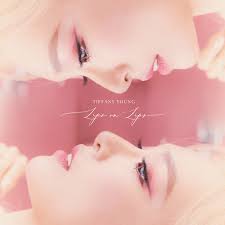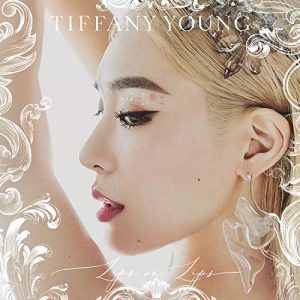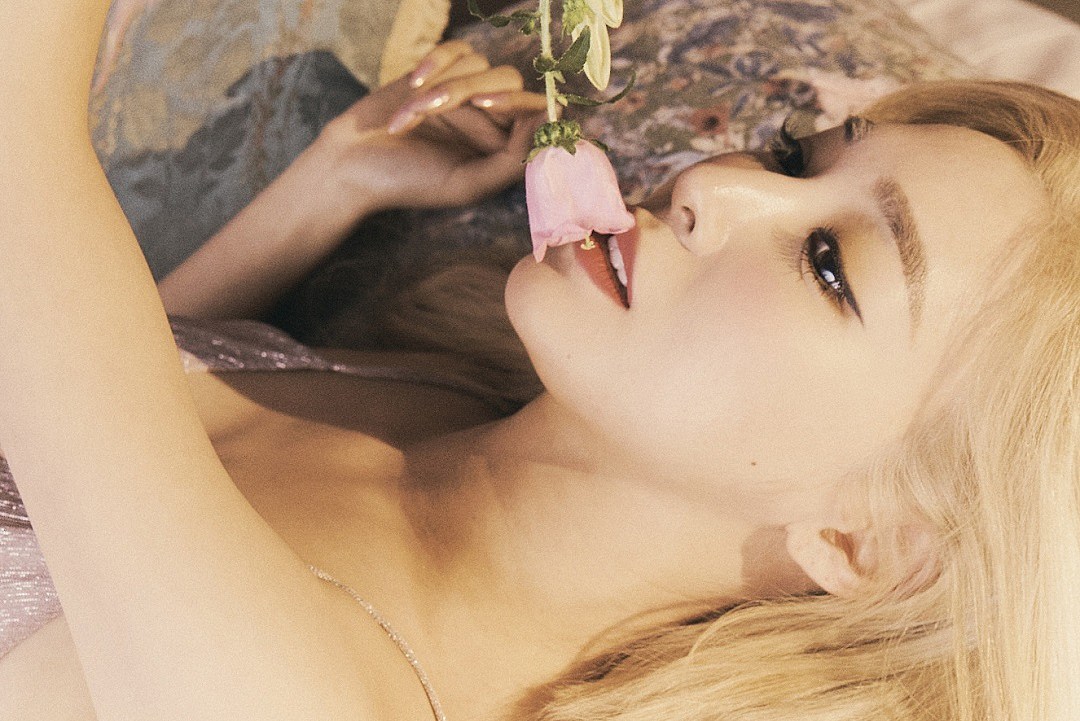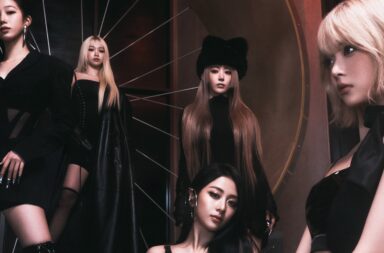
One of the most interesting aspects of the slow disbandment of Girls’ Generation is the many different directions the ladies have taken their music — Taeyeon’s got that pop-rock lean, Seohyun turned to R&B, and Yuri went for seductive house influences. So when Tiffany announced a new EP in English, I was intrigued. She has got over a decade of experience as a performer, and the American music scene is currently terrible. I was excited to see how Tiffany would make her mark in her home country. Sadly, the answer is that she’s following trends. Worse, she’s not doing it well
Lips on Lips is clearly a play for the western market. It is not even the language shift that makes the point; it is the sound. Tiffany is following in the sonic steps of Ariana Grande and Halsey, with the pop sensibilities married to a more R&B influenced vocal delivery. It is not surprising that Tiffany is moving forward in this vein; she has the voice for it. Her vocals have enough strength to work the richer emotions needed, while also being able to dip into the softer cooing demanded on “The Flower.” She sounds fantastic, and I cannot fault a note out of Tiffany’s mouth. Sadly, the same cannot be said for anything else about Lips on Lips.
The biggest issue, the source of every problem on this EP, is that Tiffany is not hopping on a trend that works for her. She is failing to do so because she does not seem to understand why this trend works. Ariana and Halsey are compelling because they are laying their souls bare. Their messy lives are served up for public consumption, complete with name drops and details. Lips On Lips is a collection of bland platitudes that are as personal as a motivational poster.
There is nothing here that hints at the struggles that supposedly inspired her. “Born Again” has been covered in our MV review, but that is just the tip of the iceberg. “Not Barbie” is a self-empowerment anthem, but it lacks any insight into the image pressures she has been living with since she was a teenager. There song only offers an oblique reference to her race and the lack of Asian representation in the west. “Lips on Lips” and “Runaway” are both love songs, but they fail to provide any clue as to their impact on Tiffany’s life. As much as she has framed this album as a highly personal release, there is nothing here that could not come out someone else’s mouth
Moreover, the lyrics are not just truisms; they are badly written ones. Special attention goes to “Lips on Lips” for “These lips on lips, they go like this,” which is a visual comparison in an audio-only format. For all we can tell, “like this” involves sock puppets. There is also the head-scratching “everything I got is why I’m so gifted,” from “Not Barbie,” implying Tiffany’s skills are the result of her success. Phrases are poorly constructed, metaphors are mixed; Lips On Lips is just sloppy. In many ways, it makes the album’s standout, “The Flower,” more frustrating. “I’ll be the flower to your pain” is a great lyric. It is evocative and romantic, with the doomed undertone highlighted perfectly. It also highlights how clunky everything else is.

The music fails to help either. While the lyrics are held back by Tiffany’s failure to open up, the production sounds like a focus group. Lips On Lips was clearly made with the idea that stripped down was the same thing as authentic. However, it is so obviously following the pop&B trend that any sense of genuineness dies immediately. Every track bleeds into the next, lacking anything but the most basic distinguishing features.
I will give credit for falling back onto an acoustic guitar in “Not Barbie” and “Runaway.” While it is a common move when going for a personal sound, it is rarely seen with female artists. The balance against the trap hi-hats in “Runway” does provide a level of despondency that faintly matches Tiffany and Babyface. However, the plunking strings of “Lips on Lips” just make the track sound childish and immature. Once again, “The Flower,” with its lilting melodies and delicate arrangement, is the only track that has any personality to it.
I understand the desire to play it safe and stick to what works, but that is a viable plan only if it is done to the artist’s advantage. Lips On Lips is a blatant attempt to follow the personal tragedy-fuelled success that is dominating western pop, one without any personal influences. The ideas are there, Tiffany’s voice is there, but nothing else is. Lips On Lips is a hollow imitation of personal struggle.
(Images via Transparent Arts. YouTube)



